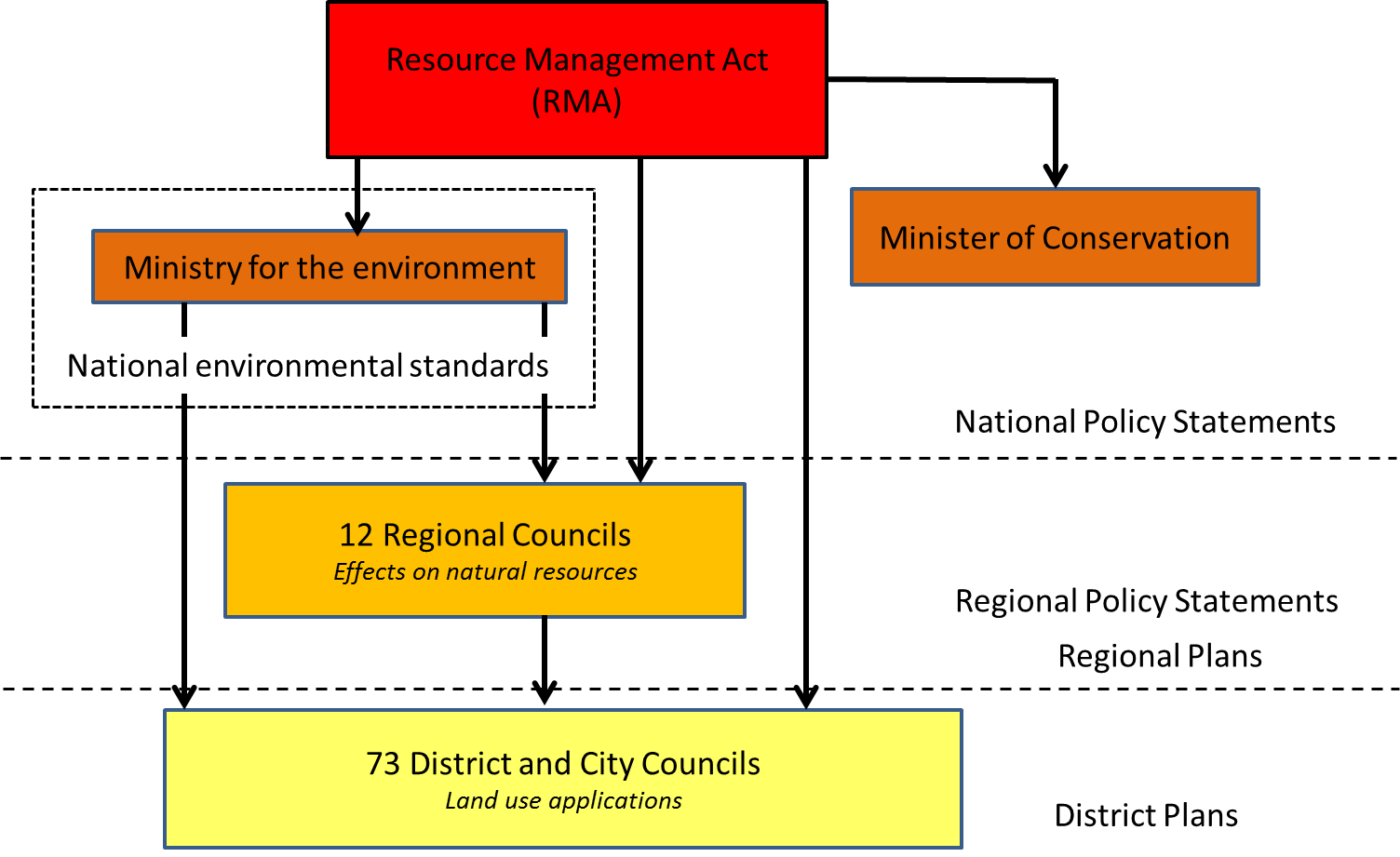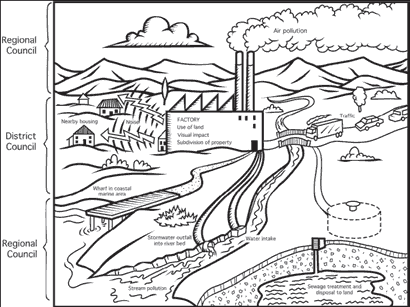Week 1 - RMA
1. NZ Legislation
1.1. Legislation Hierachy
 The RMA framework allows those whose are directly affected to make the decisions. This decision-making authority is devolved to the most appropriate level. Therefore at national level, a consistent policy is set which can then be interpreted by the Ministry for the Environment and Councils. Below this level, decisions that directly impact on local communities are made by councils, which, under the RMA, are called local authorities.
The RMA framework allows those whose are directly affected to make the decisions. This decision-making authority is devolved to the most appropriate level. Therefore at national level, a consistent policy is set which can then be interpreted by the Ministry for the Environment and Councils. Below this level, decisions that directly impact on local communities are made by councils, which, under the RMA, are called local authorities.

Local authorities are responsible for implementing the bulk of the RMA, and are divided into two tiers (regional and district/city councils) for this purpose.
There are 12 regional councils which are responsible for:
- the taking, use, damming, and diversion of surface water, groundwater and geothermal water
- the discharge of contaminants to land, air or water
- the effects of activities in the coastal marine area (together with the Minister of Conservation)
- the introduction of plants into water bodies
- maintaining indigenous biodiversity
- land-use for matters such as soil conservation, maintaining and enhancing ecosystems in water bodies, water quality and quantity, and controlling natural hazards and hazardous substances
- the strategic integration of infrastructure with land-use.
There are 73 District and City Councils which are responsible for:
- the effects of land-use (including hazardous substances, natural hazards and indigenous biodiversity)
- noise
- the effects of activities on the surface of lakes and rivers.
All councils are responsible for preparing policy statements and plans, issuing resource consents, taking enforcement action, and monitoring the state of the environment and the effect of their own decisions, all within the context of their functions under the RMA.
Permitted activities guides can be found under district or a regional plans for non-unitary councils, here is a link to an example →
(Image courtesy of MfE, 2014)
The Environmental Protection Agency (EPA) is a governmental body who can make decisions and give advice to council regarding resource consents.
The Ministry for the Environment (MfE) provides evidence-based policy advice for government and maintains an active overview and monitoring role of the implementation of the RMA
Department of Conservation (DoC) is a government agency charged with conserving NZ's natural and historic heritage.